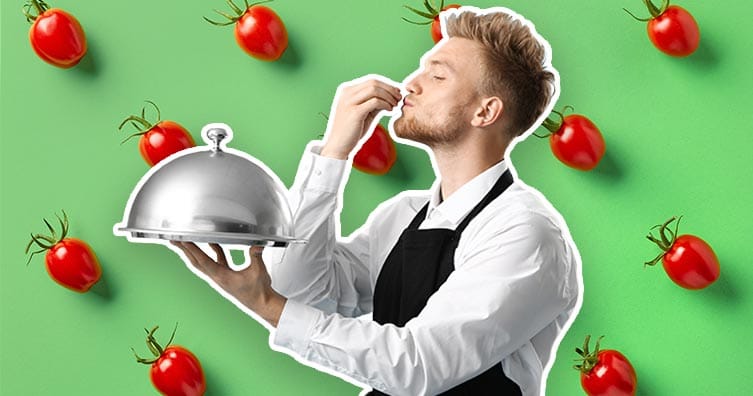
Getting food cooked as a student can be scary if you haven’t done a lot of cooking in your life. Takeout or no-fuss meals can be handy in the age of busy schedules and limited budgets. But if you’ve some basic cooking skills, you can save money, eat healthier, and make it an enjoyable creative hobby. For new cooks or anyone looking to brush up on some basics, here are cooking tips every student needs to learn.
Understanding Kitchen Essentials
Before you start cooking, get to know what you’ll be working with. Almost any recipe has a few essential kitchen tools, such as a sharp knife, cutting board, skillet, and saucepan. Learn how to use a knife to cut, dice, and slice quickly and safely. The other key element is keeping a pantry stocked with staples you can always use. Rice, pasta, cannellini beans, spices, and oils are all cheap and suitable for any dish. You can whip up quick, healthy meals without eating off the shelf when you have these things.
Cooking becomes even more overwhelming and complicated if you have a lot of coursework. Don’t give up your favorite activities and mastering essential life skills – seek support from a top essay writing service UK when needed. Delegating assignments is an intelligent move for staying on top of your responsibilities.
Mastering Simple Cooking Techniques
No one says you must be a professional cook to make delicious food – just a few simple techniques can get you cooking in the right spirit. The following are five easy skills that every student should practice:
- Boiling: Great for quickly boiling pasta, rice, or veggies.
- Sautéing: Use a little oil in a pan to brown vegetables, meats, or sauces over medium heat while turning and shaking frequently to prevent burning.
- Roasting: Marinate vegetables or chicken with oil and spices and roast in the oven until tender and caramelized.
- Baking: Great for casseroles or baked snacks that need the temperature just right for even heating.
- Grilling (or pan-grilling): Smoke or sear meats and vegetables on a grill pan or stovetop.
Beginning with these methods will set you up well to cook quick, tasty, and satiating meals for all levels of expertise.
Learning to Plan and Prep
Food planning and preparation are life-savers for busy students. Spend some time at the beginning of each week figuring out what you’ll cook. This not only saves you time but also saves you money by eliminating impulse buys at the grocery store. Prepping items ahead of time makes cooking even more accessible. Slice up vegetables, marinate proteins, or make grains ahead of time so meals come together during the week. Even a few hours of prep work can get you out of your stress zone and ensure you eat well even during your hectic day.
Cooking Balanced and Affordable Meals
The biggest problem young people have is designing healthy and affordable meals. Look for the trifecta, a combination of protein, carbohydrates, and vegetables in each course. If you need protein, eggs, chicken, tofu, or canned tuna are good choices. Rice, pasta, or potatoes are satiating and economical, and fresh or frozen vegetables are nutritious. Get used to spices and herbs that can give ordinary things new flavors. Add some garlic powder, paprika, or Italian seasoning to make something bland taste good.
Handling Food Safety and Cleanup
Food safety is a little-known aspect of cooking that should be considered. Wash your hands and wipe your surfaces before and after handling raw meat. Cook food at proper temperatures so you won’t be sick with food poisoning. For instance, chicken should be at an internal temperature 165°F and ground beef 160°F. Just as important is cleaning up after the cook. Wash your dishes, wipe the counters, and tuck away the leftovers in airtight containers. Be prepared to clean up so cooking doesn’t overwhelm you, and keep your kitchen tidy.
Building Confidence in the Kitchen
The more you cook, the more skilled and self-assured you’ll be. Begin with easy recipes, then get more complicated as you get better at them. Mistakes are a natural part of the learning curve, so don’t get upset when it doesn’t always go exactly as planned the first time. Cooking can also be a creative and social activity. Throw a cookout with friends or recreate a dish you tasted at your local restaurant. Not only does this make you better, but cooking also becomes fun.
Cooking Is a Life Skill Worth Learning
As a student cook, you are not just making food; you’re gaining life skills that prepare you for the world. Cooking becomes second nature once you learn some basic skills, prepare for it, and give it a try. It doesn’t have to be complicated or take so long to be fun. Begin small, be consistent, and enjoy it. These cooking tricks will give you all you need to cook meals that taste good, are affordable, and personal. Your future self (and your pocketbook) will thank you.
Leave a Reply